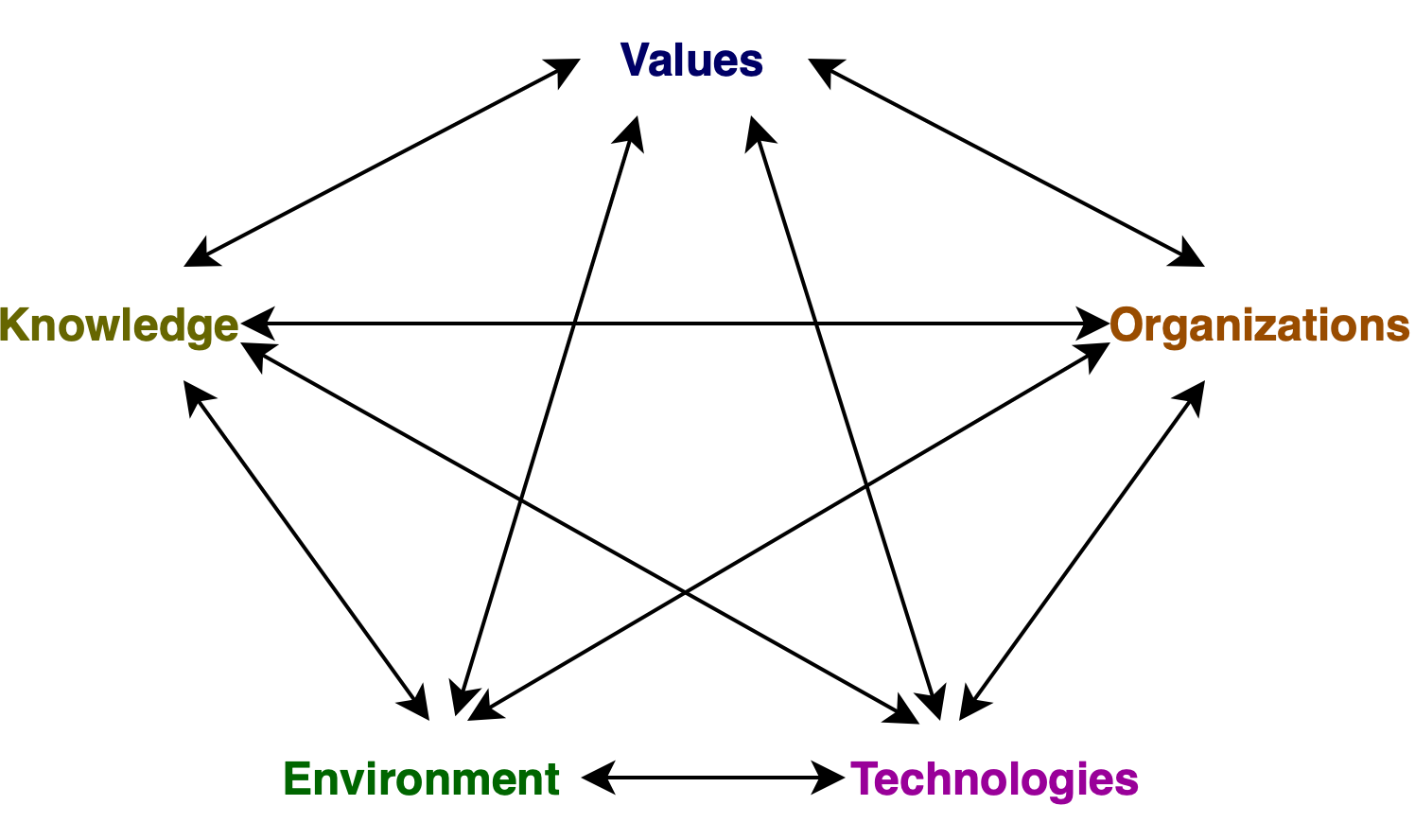
Coevolution
A Coevolutionary Framework for Human Progress
In ecological economics, coevolution represents a frame of mind, which consists of looking at evolution as a coevolutionary process and linking specific and strong coevolutionary relationships between social and environmental systems. Although coevolution was coined by Paul Ehrlich and Peter Raven in 1964 in “Butterflies and Plants: A Study in Coevolution”, Norgaard (1994) applied it to develop a comprehensive coevolutionary reconstruction of human progress by emphasizing the following 3 aspects:
1) the coevolution of human economies and natural ecosystems over time and space,
2) the need for pluralism, and
3) the movement from progress as a cultural merging idea to a coevolving patchwork quilt of cultures as a revision for a sustainable future.
By understating how social systems have coevolved with ecological systems, we can learn to appreciate, preserve and adapt traditional cultures to an ecological economic way of thinking and thus increase the chances of achieving sustainability. The diagram below shows how our values coevolve with our knowledge, organization and the environment and technologies that ultimately enable our well-being.
This diagram shows the coevolutionary process as originally envisioned by Norgaard (1994).
The Socio-Ecological Coevolutionary Framework Needed to Understand Sustainable Systems
Kallis and Norgaard (2010) refer to socio-ecological coevolution for cases where the evolution in the social system affects the biophysical environment, which in turn affects the evolution of the social system. This framework can be applied to understand how our socio-economic systems coevolution with fossil energy leads to the expansion of exploitative practices to find and extract more and more fossil energy as stocks are depleted. The dependence of modern civilization on fossil fuels undermines the stability of our planetary boundaries such as climate change. This coevolutionary reality will continue to drive up costs and lead to the need for finding and exploiting more fossil energy in an attempt to overcome the biophysical costs to our food systems and infrastructure for example. The key is to learn how to apply ecological economics to understand how we can systematically overcome humanity’s dependence on fossil energy to find a way to coevolve with the rest of nature in a mutually enhancing relationship that enables well-being for all at a low ecological cost.
Would you like to learn more?
